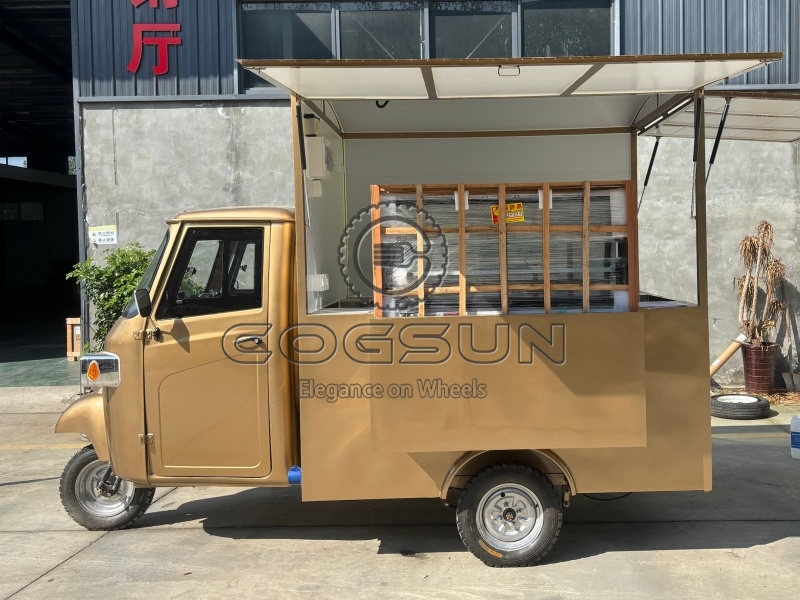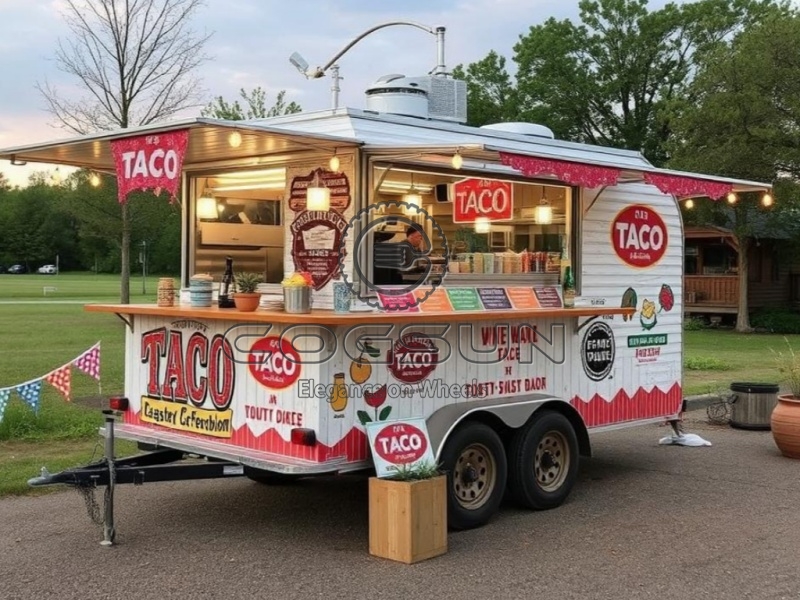Mini Food Trucks are engineered to maximize functionality within a 3–5-meter-long frame, making them ideal for navigating crowded urban streets, indoor venues, or niche markets. Their lightweight construction ensures compliance with standard driving licenses, while their customizable exteriors—featuring vibrant wraps, LED displays, or interactive windows—transform them into eye-catching brand ambassadors.

Core Features
1. Unmatched Mobility & Accessibility
- Squeeze through tight alleyways, park in compact spots, or operate indoors.
- Switch locations daily to target high-footfall zones like office districts, schools, or night markets.
2. Cost-Effective Business Model
- 70% lower startup costs compared to full-sized food trucks or brick-and-mortar stores.
- Minimal utilities and maintenance expenses, with some models consuming as little as 5 kWh/day.
3. Rapid Customization & Scalability
- Reconfigure interiors in hours to switch from a coffee bar to a taco stand.
- Deploy multiple units for large-scale events without the logistical headaches of larger vehicles.
4. Brand Engagement & Social Media Appeal
- Leverage Instagrammable designs and “pop-up” events to generate buzz.
- Integrate QR code menus, loyalty programs, or live cooking streams to boost customer retention.
Internal Equipment
1. Cooking Zone
- Single/dual-burner induction cooktops for energy-efficient stir-frying or boiling.
- Countertop convection ovens for baking pastries or roasting meats.
- Compact deep fryers with automatic oil filtration systems.
2. Refrigeration & Storage
- Under-counter fridges/freezers with digital temperature controls for fresh ingredients.
- Modular shelving units with anti-slip mats to secure utensils and condiments.
3. Safety & Hygiene
- NSF-certified stainless steel countertops for easy sanitization.
- Built-in handwashing sinks with foot pumps to conserve water.
- Fire suppression systems and gas leak detectors for compliance with health regulations.
4. Tech Integration
- Point-of-sale (POS) tablets for contactless payments and order tracking.
- IoT sensors to monitor inventory levels or equipment performance in real time.
Application Areas
1. Urban Street Economy
- Serve quick bites during lunch rushes.
- Partner with food delivery platforms for hybrid online/offline sales.
2. Cultural & Tourism Hotspots
- Offer themed menus at museums, festivals, or historic sites.
- Collaborate with local artists to create edible souvenirs.
3. Corporate & Private Functions
- Provide bespoke catering for product launches, weddings, or film sets.
- Example: A Mini Food Truck serving molecular gastronomy canapes at a luxury car brand’s VIP event.
4. Social Impact Initiatives
- Deploy as mobile soup kitchens in disaster zones or underserved communities.
- Partner with NGOs to distribute free meals during health crises.
5. Global Export Opportunities
- Export customized units to international markets.
- Adapt menus to local tastes—e.g., a mini truck selling Korean-style hot dogs in Mexico City.




